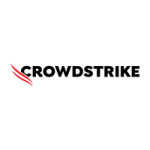What is our primary use case?
General use cases would be for patch management and vulnerability management. The devices that are on the network may need patching if they're outdated. For any device or node that has entered the network and may be considered a threat, the HTTPS ports and different nodes need to be monitored for incoming and outgoing traffic. We could put in security rules for monitoring the actual devices down to the USP level, and we can also get the vulnerability information from OSX, and then provide that information to the IT teams.
In terms of the version, usually, when the updates come, the updates need to be aggregated to the customer, but at this moment in time, I am yet to secure a customer in that space due to the current COVID crisis in the country, across the Pacific, and globally.
In terms of deployment, the endpoints are on-premise, but it would be cloud-based in terms of the platform. So, it could be both depending on the customer. They would either have cloud or hybrid.
What is most valuable?
In terms of monitoring, my best feature would be the monitoring of components across the network. It monitors the respective nodes and any new node that comes onto the network and provides reports. The reporting dashboards are really helpful for management in terms of making decisions around patch management.
It is an all-in-one package. In terms of the selling points, to the best of my knowledge, it has eight different selling points or eight features, and they're all interlinked, which most of the infrastructure setups here do not have. They have separate systems for monitoring the networks. So, USM can cater based on those eight capabilities.
What needs improvement?
I've been using it just for my own personal upskilling in terms of how the product works. At the moment, it is pretty straightforward and simple, and it is working how it is supposed to. The feedback would come once it is deployed to customer sites. They'll be using it on a more frequent basis, and that's when the feedback would come in terms of the areas in which they're facing issues or are looking for simplicity.
For how long have I used the solution?
I have been using this solution for the last eight to 10 months.
What do I think about the stability of the solution?
So far, I haven't seen any patches or updates from the partner or the OTX site to show any issues in terms of stability. Based on the frequency of the updates, at the moment, it seems stable.
What do I think about the scalability of the solution?
It is easy to scale. It comes with all features, as opposed to separate individual modules. To my knowledge, you can scale it for your organization as and when there is a requirement or the organization grows. So, in terms of scalability, there is no problem. After you get it up and running, as the organization grows, the engines will be able to pick up that information.
It is really good for medium and large companies, but it can also be used for small organizations. Instead of deploying it to a small organization, you could provide a service where it is not on the customer site, and you basically link into your nodes for small customers. So, you install it for medium and large customers, and for small customers, you install it on your premise, and then you sell the individual features that they may request.
How are customer service and technical support?
I have not been in touch with their technical support. I deal with the technical account manager. When I read up the information and there is something that I'm not sure about, I check my resources and see what's available online. If none of the available resources are helpful, I reach out to my account manager who then puts me in touch with the technical team. I presume that if we encounter any issues in deployment, it would be based on a customer's demography or the setup.
How was the initial setup?
If you're not familiar with it from a tech perspective, it might be confusing for you, but from what I've seen and based on my experience, it is pretty simple and straightforward.
The user guides are also very helpful if you hit any roadblocks. It is very straightforward in terms of the instructions to set it up, but you should have minimum tech experience in understanding the documentation, which is fair enough and good because you don't want it to be too simple to set up that companies would say, "Well, we don't need IT if anybody can do this." So, you'd need some technical background to at least understand the documentation or the user guide.
I've only installed it for myself. It took a short amount of time to get it up and running. The deployment duration would depend on a customer's infrastructure size and the number of nodes that a customer has. It will also depend on the data collection that the agents or the engines need to do to protect the information and then put it in its database.
What's my experience with pricing, setup cost, and licensing?
Its price is in the medium to upper range.
What other advice do I have?
I would definitely recommend this solution, but I would also do a pre-assessment of the organizational setup and infrastructure. I'm a reseller, and it is obviously my top priority that we sell the product
If you look at the Gartner Magic Quadrants, you will see AlienVault is up there in the upper right quadrant, which makes it one of the top recommended solutions. That is the reason for my partnership with AT&T Cybersecurity for the product.
I would rate AT&T AlienVault USM a nine out of 10. No solution is 100% perfect.
Disclosure: My company has a business relationship with this vendor other than being a customer. Partner


















